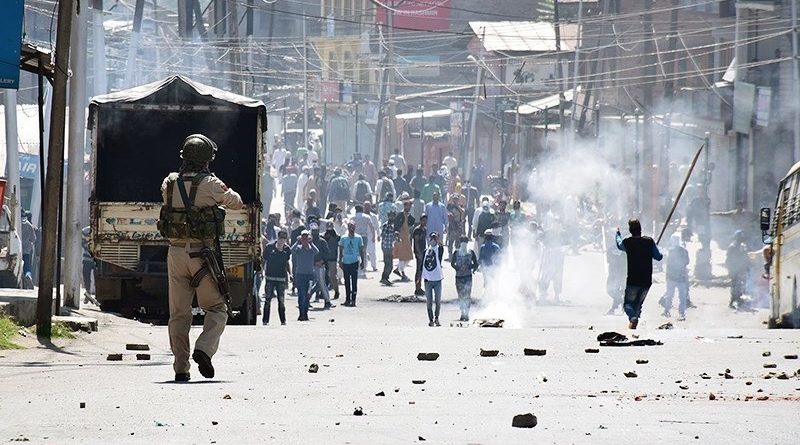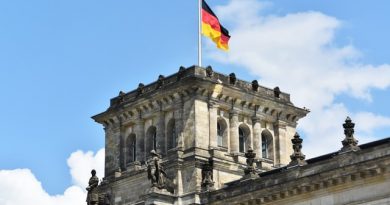Attacks in Disputed Kashmir Heighten Tensions Between India and Pakistan
Jarrett Dang
Staff Writer
In Kashmir, a region disputed between India and Pakistan, nine have been killed in a firefight between Indian security forces and fighters belonging to a Pakistan-based terror group, according to BBC News. Among those killed were four Indian soldiers, a police officer, and three militants.
The violence followed another attack on February 14 that killed over 40 Indian soldiers when a car bomb struck a military convoy in Pulwama, which is part of Indian-controlled Kashmir. The Washington Post reports that the suicide bomber, a 22-year old Kashmiri man named Adil Dar, rammed an SUV loaded with explosives into a military bus transporting paramilitary soldiers from India’s Central Reserve Police Force.
The Pakistan-based terrorist group Jaish-e-Mohammad, or “Army of Mohammad,” an Islamic extremist group that has carried out similar strikes throughout India in the past, orchestrated both attacks. The group is banned in Pakistan but continues to exist thanks to an absence of action by Pakistani authorities to combat such extremists.
CNN reports that India blames Pakistan for the car bombing and said that it has “incontrovertible evidence of (Pakistan) having a direct hand in this gruesome terrorist incident.” India’s Foreign Ministry released a statement on February 19 calling on Pakistan to “take credible and visible action against the perpetrators of Pulwama terrorist attack.”
Pakistan condemned the violence and denied any involvement in the bombing or supporting the Army of Mohammad group. It claims that India’s accusations are unsubstantiated and are being used to distract from Indian human rights abuses in Kashmir. The Economic Times details that in a statement on February 19, Pakistani Prime Minister Imran Khan offered to help India with investigations into the attack if India turns up “any actionable intelligence.” Khan also warned that Pakistan would not hesitate to retaliate against any Indian military action.
The Pulwama attacks have sparked a diplomatic crisis between the two South Asian neighbors. Both nations have recalled their ambassadors to each other, according to Al Jazeera. The Indian government threatened to “completely isolate” Pakistan internationally for the attack and revoked the country’s “Most Favored Nation” status, which granted Pakistan special trading privileges with India. The Wire reports that India also raised tariffs on all Pakistani goods by 200 percent, effectively severing trade relations between the two countries.
In India, public outrage over the attacks has boiled over and many are harassing Kashmiri people in retaliation. The Washington Post further reports that Kashmiris living in India are being targeted, with students and shopkeepers being threatened by angry mobs chanting anti-Kashmiri rhetoric. Some even threatened retaliation against landlords that did not kick out Kashmiri students living on their property.
India has called on the international community to impose sanctions on the Army of Mohammad and to designate its leader, Masood Azhar, as a terrorist. This could be stymied by China, however, as it is a strong ally of Pakistan and has vetoed India’s past attempts to get the UN to designate the group as a terrorist organization. An additional report by Al Jazeera states that UN Secretary-General Antonio Gutierrez offered to mediate peace between the two countries and called on India to de-escalate its rhetoric.
India’s strong response to the Pulwama attacks coincides with national elections that are due to take place in April and May 2019. Indian Prime Minister Narendra Modi, whose job is on the line, is under immense public pressure to respond strongly against Pakistan. The Prime Minister has echoed public sentiments, saying that, “I want to assure each family who lost their loved one that each drop of tear will be avenged,” promising a “jaw-breaking response” to the attacks, according to the Indian Express.
As the diplomatic standoff between India and Pakistan heats up, there is a risk of increased violence in the region. There have long been clashes in Indian-controlled Kashmir between the Muslim-majority population and the Hindu government that administers it. Violence in the disputed region has risen in recent years amid crackdowns by Indian security forces on militant groups. Tensions between the two countries may erupt and unleash further violence in Kashmir.



